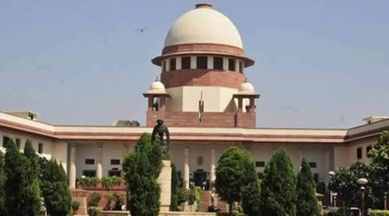Ananthakrishnan G. is a Senior Assistant Editor with The Indian Express. He has been in the field for over 23 years, kicking off his journalism career as a freelancer in the late nineties with bylines in The Hindu. A graduate in law, he practised in the District judiciary in Kerala for about two years before switching to journalism. His first permanent assignment was with The Press Trust of India in Delhi where he was assigned to cover the lower courts and various commissions of inquiry. He reported from the Delhi High Court and the Supreme Court of India during his first stint with The Indian Express in 2005-2006. Currently, in his second stint with The Indian Express, he reports from the Supreme Court and writes on topics related to law and the administration of justice. Legal reporting is his forte though he has extensive experience in political and community reporting too, having spent a decade as Kerala state correspondent, The Times of India and The Telegraph. He is a stickler for facts and has several impactful stories to his credit. ... Read More
Places of Worship Act: Validity of Act ‘may not be covered’ by SC opinion in Ayodhya case, says solicitor general
Chief Justice of India U U Lalit sought Solicitor General Tushar Mehta’s personal opinion about the argument of those opposing the petitions that the validity of the Places of Worship Act is already covered by the Ayodhya judgment.

Solicitor General Tushar Mehta on Wednesday told the Supreme Court that the validity of the Places of Worship Act, 1991, which is under challenge before it, “may not be covered” by the opinion of its five-judge Constitution bench in the Ayodhya case.
Mehta said this when Chief Justice of India U U Lalit, who was presiding over a three-judge bench hearing petitions challenging the constitutional validity of the Act, asked him what his personal opinion was about the argument of those opposing the petitions that the validity of the Act is already covered by the Ayodhya judgment.
monthly limit of free stories.
with an Express account.
With the Centre seeking two more weeks to place its stand on the issue and those opposing the petitions also seeking a week to reply, the Supreme Court adjourned the matter to November 14.
Commenting on the Act in its November 9, 2019 judgment in the Ramjanmabhoomi-Babri Masjid dispute, the SC said, “In providing a guarantee for the preservation of the religious character of places of public worship as they existed on 15 August 1947 and against the conversion of places of public worship, Parliament determined that independence from colonial rule furnishes a constitutional basis for healing the injustices of the past by providing the confidence to every religious community that their places of worship will be preserved and that their character will not be altered.”
“The law addresses itself to the State as much as to every citizen of the nation…The State, has by enacting the law, enforced a constitutional commitment and operationalised its constitutional obligations to uphold the equality of all religions and secularism which is a part of the basic features of the Constitution. The Places of Worship Act imposes a non-derogable obligation towards enforcing our commitment to secularism under the Indian Constitution. The law is hence a legislative instrument designed to protect the secular features of the Indian polity, which is one of the basic features of the Constitution…The Places of Worship Act is…a legislative intervention which preserves non-retrogression as an essential feature of our secular values.”
Those supporting the Act, therefore, claim that the judgment already recognised its purpose.
Those challenging the Act, however, contend that the Act itself was not under challenge in the Ayodhya case and therefore the comments were not made after examining its constitutional validity.
The Act declares that the character of a place of worship as on August 15, 1947, shall be maintained and no suit or proceeding shall lie in any court in respect of any dispute against encroachment of any religious properties at any point of time before this date. It also says that any such pending proceeding shall stand abated and that if any proceeding filed on the ground that conversion of religious place has taken place after that date and before September 18, 1991 when the Act was made by the Parliament, shall be disposed of to maintain the status as was existing on August 15, 1947.
Petitioners have challenged the Act contending it bars the power of remedy of judicial review which is a basic feature of the Constitution and is therefore outside the legislative competence of Parliament. The Act, they say, also violates the principle of secularism.
“The result is that Hindu devotees cannot raise their grievance by instituting any suit in Civil Court or invoking the jurisdiction of the Hon’ble High Court under Article 226 of the Constitution of India against high handiness of ultras and will not be able to restore back the religious character of Hindu Endowments, Temples, Mutts etc from hoodlums if they had encroached upon such property before 15th August 1947 and such illegal and barbarian act will continue in perpetuity,” it said.
The Act had kept out the land which was the subject matter of the Ayodhya dispute from its purview.
Referring to this, the petitioners have said “in case the Ayodhya case would not have been decided, the Hindu devotees would have been denied justice. Therefore any restriction on the right to approach the Civil or High Court is against the basic principle of rule of law necessary component of a welfare State”.